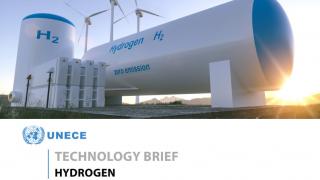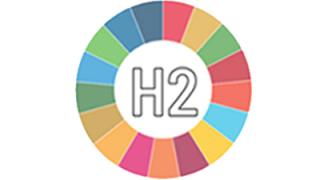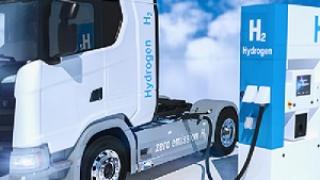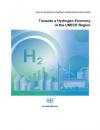Hydrogen
Introduction
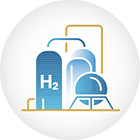
Many UNECE member States recognize hydrogen as a bridge to achieving net zero, especially in hard-to-abate industries. However, hydrogen, although clean and versatile, is not an energy source – it is an energy carrier that first must be produced, transported, and stored at scale. Creating a hydrogen value chain, from practically zero today to an immense and complex future industry is not easy.
To assist efforts of the member States, in June 2023 UNECE set up a Hydrogen Task Force (HTF) tasked with facilitating policy dialogue on hydrogen within the UNECE region and beyond. HTF complements the ongoing international efforts with a view to:
- Expand the reach of current initiatives to the countries not usually covered by them (Central Asia, Caucasus, Southeast Europe)
- Explore how the UN Framework Classification (UNFC) and the UN Resource Management System (UNRMS) could be applied to hydrogen projects
- Serve to all non-UN actors as a gateway to the UN family of organizations (the Economic and Social Council, other regional commissions, UNEP, UNDP, etc.)
In collaboration with the Group of Experts on Gas and other Groups of Experts under the Committee on Sustainable Energy HTF promotes good practices and recommendations on:
- Business case for blending hydrogen with natural gas
- Hydrogen purity requirements for its production, transmission, and use
- The role of gas infrastructure in accelerating development of hydrogen projects
- Hydrogen emissions in the context of climate change
Recent acheivements
In 2020, UNECE prepared the document “Hydrogen - an innovative solution to carbon neutrality”, providing recommendations to member states to be agnostic and neutral when it comes to technologies, and to adopt common, science-based terminology.
In 2021, the Executive Committee of ECE approved the extrabudgetary project: “Sustainable hydrogen production in the UNECE region and its role in the development of a hydrogen ecosystem and export potential”, with the objective of improving capacities of nine UNECE member States (Azerbaijan, Armenia, Belarus, Kazakhstan, Kyrgyzstan, Republic of Moldova, Tajikistan, Turkmenistan, and Uzbekistan) to develop sustainable hydrogen production strategies while raising awareness and overcoming economic, technical, policy and investment barriers. The results of the project have been recently circulated in a publication from UNECE.
In 2022, the ECE Committee on Sustainable Energy at its 31st session discussed a “Comprehensive and science-based terminology, classification and taxonomy for hydrogen”, which envisions a future UNECE taxonomy inclusive of economic, social, and environmental considerations as set forth in the United Nations Framework Classification for Resources (UNFC), and the need to develop a classification for hydrogen that goes beyond colours and addresses the full life cycle of hydrogen production and transport.
In March 2024 HTF released, in collaboration with Hydrogen Council, the publication “Towards a Hydrogen Economy in the UNECE Region” that looks at hydrogen classification based on technology-neutral, quantified greenhouse gas emissions intensity levels of hydrogen production options.
In focus
Highlights
Defining sustainable hydrogen: beyond colours
HYDROGEN – an innovative solution for carbon neutrality?
Hydrogen in Europe: Russia’s friend or foe? Водород в Европе: друг или враг России?
29 October 2020 – Hydrogen is a bridge to achieving carbon neutrality. It is not zero-carbon today, but should be in the future. To achieve that, good planning is key. Some member States have already developed a hydrogen strategy, some are working on it. Who does what on hydrogen and how UNECE could help the member States coordinate their efforts is in the presentation that was given on 29 October 2020 at the online conference: “Development of renewable energy sources in the European Union and the assessment of their effectiveness”, organized by the Nizhny Novgorod State Technical University R.E. Alekseeva.
Hydrogen gains momentum in the UNECE region
(UNECE NEWS, 29 September 2020)
On 25 March 2020 UNECE held an Online Hydrogen Workshop in partnership with World Energy Council (WEC) to discuss steps towards a hydrogen enabled future. The objective of the workshop was to i) develop a catalogue of regulations and standards in need of revisions for hydrogen to be able to heat homes and fuel cars within the UNECE region; ii) facilitate international and cross-sector strategic knowledge exchange around public acceptability and the potential of a hydrogen economy for the UNECE region. Read more
Recent Events
Geneva, Switzerland
and onlinePalais des Nations, room H-307-1 1208 Geneva Switzerland
and online